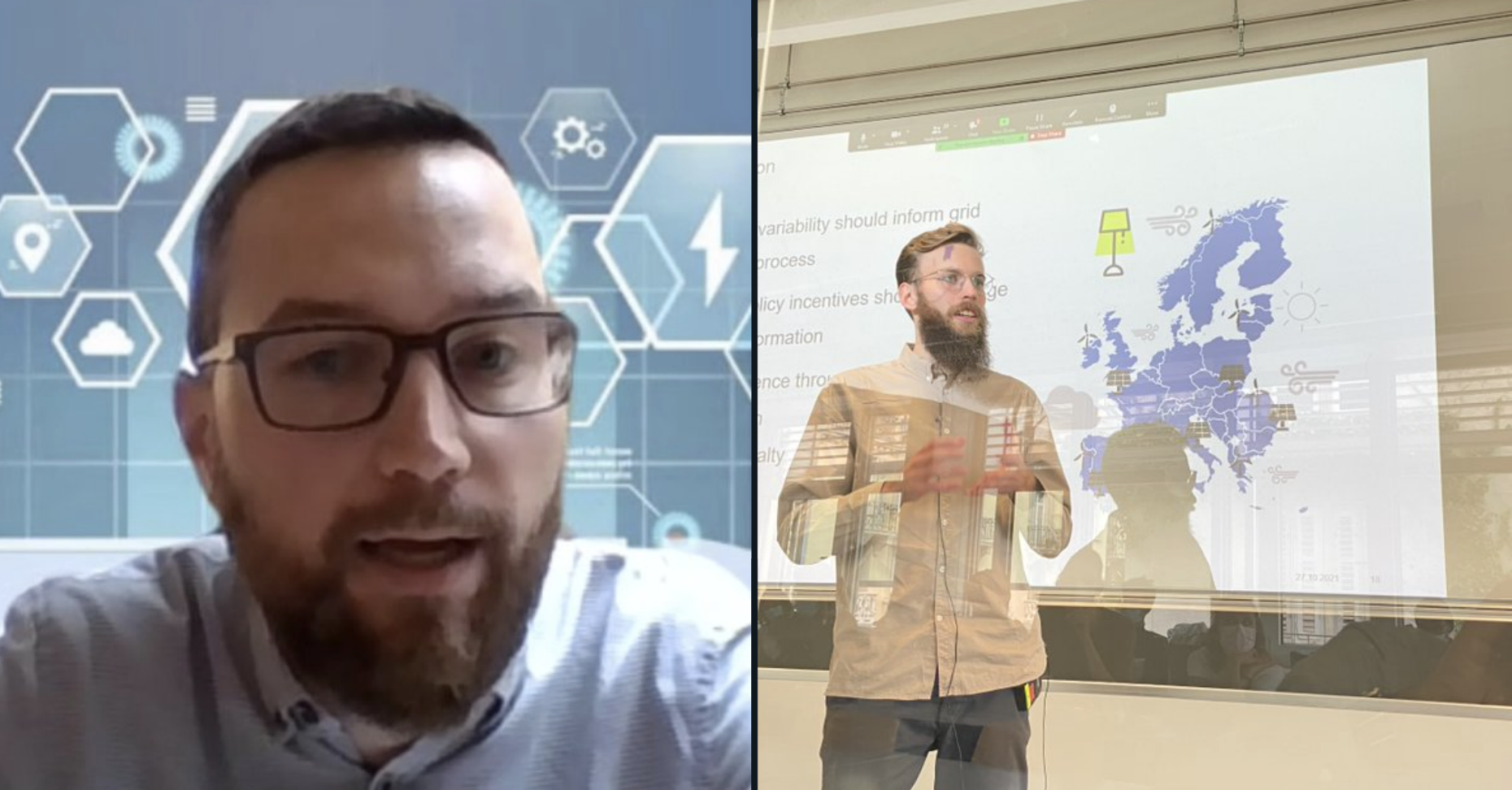Technology competition for the low-carbon transport transition in Switzerland / Can a uniform and dynamic incentive scheme across Europe lead to the development of a temporally balanced and spatially distributed renewable energy supply?
Andreas Eckmann and Niklas Stolz have just graduated from the MSc STP programme and present their master’s theses. Both works focus on the technological transition to a low-carbon system. While Andreas Eckmann looks at the competition between different technologies in transport, Niklas Stolz investigates an incentive scheme for better distributed power generation by renewa-ble energy.
by Victoria Herbig and Jan Linder

Andreas Eckmann: Technology competition for the low-carbon transport transition in Switzerland
To reach the goals of the Paris Agreement, the road-freight sector needs to switch to low-carbon drive technologies. However, it is unclear to which degree this transition is economically feasible and how policymakers can stimulate it at a minimal cost.
Andreas Eckmann investigated road-freight transport in Switzerland for his master thesis at the Energy Policy Group (EPG). He presents a modelling framework that contains detailed and ad-justed Swiss-specific data on the transportation sector, as well as insight from expert interviews and different technology and policy scenarios. It simulates competition between six drive-tech-nology options: Diesel Trucks, Bio-Diesel Trucks, Natural Gas Trucks, Hybrid Electric Trucks, Bat-tery Electric Trucks and Fuel Cell Electric Trucks (with hydrogen as fuel). Furthermore, the model distinguishes between the range and weight of the vehicles. As inputs for technological scenarios, prices and availability of newer technologies are estimated, as well as prices for fuels. As possible policy scenarios, the LSVA toll existing in Switzerland today for vehicles heavier than 3.5 tons, is adjusted in different ways for low-carbon vehicles.
The results of the simulation predict that battery electric trucks will outcompete other technolo-gies in the future road-freight sector of Switzerland. Their biggest competitor, fuel cell electric trucks, will only be able to gain a cost advantage when the hydrogen price falls significantly. How-ever, in the light-duty 3.5-ton vehicles, the transition to low-carbon drive-technologies is unlikely to happen without policy intervention.
Niklas Stolz: Can a uniform and dynamic incentive scheme across Europe lead to the development of a temporally balanced and spatially distributed renewable energy supply?
Joining the topic of climate change mitigation, the focus of Niklas Stolz in his master’s thesis at the Climate Policy Group extends to Europe and its power generation sector. As the share of power generated by renewable energy sources (primarily wind and solar) is expected to increase a lot over the next years, so does the dependency on resource availability from wind and solar irradiation. This vulnerability to local weather conditions can lead to a problem of energy supply at certain times in the future.
Niklas Stolz presents an incentive scheme which aims to improve the system-friendliness of newly constructed renewable energy electricity generators while keeping the addition cost-efficient and transparent. The goal is to make system-friendly locations, i.e., those that have other resource availability for typical European weather regimes than the already exploited locations, more at-tractive, even if the absolute resource availability is lower. This incentive scheme results in re-wards for system-friendly allocation and penalizes the addition of system-unfriendly generators.
To evaluate the performance of the incentive scheme, different scenarios are modelled using the modelling framework Calliope. Compared to the baseline, the incentive scheme can substantially increase the energy system’s resilience while the system costs increase by only 3.8%. This result suggests that a coordinated European strategy for the deployment of renewable power genera-tors would be beneficial for the stability of the future European electricity grid.
We thank the two speakers, Andreas Eckmann and Niklas Stolz, for the interesting insight into master’s theses at the ISTP.
To get a broadened sense of the ISTP and our topics of interest and past seminars visit our Colloquia page.